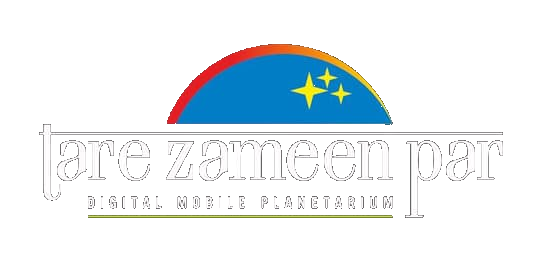Spark of Curiosity 2021 - 2022: Project Overview
Science and Math have been the toughest subjects all the time. However, it is very important to learn these subjects. Math and science education provide a framework for how to find answers. Math models phenomena and relationships in our observable environment, while articulating concepts from the intuitive to the obscure. Science gives deep attention to the quality and interaction of the things that surround us. But the students from the remote areas aren’t privileged enough to get good teachers, well-equipped science labs, or access to the latest technologies.
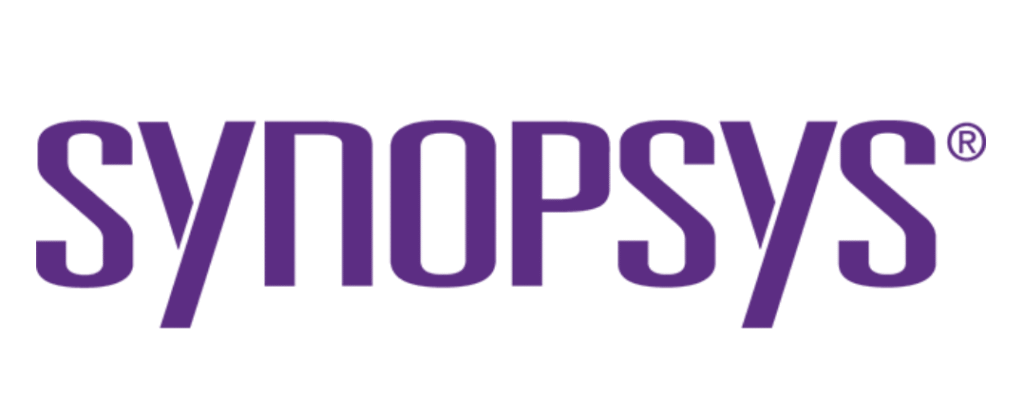
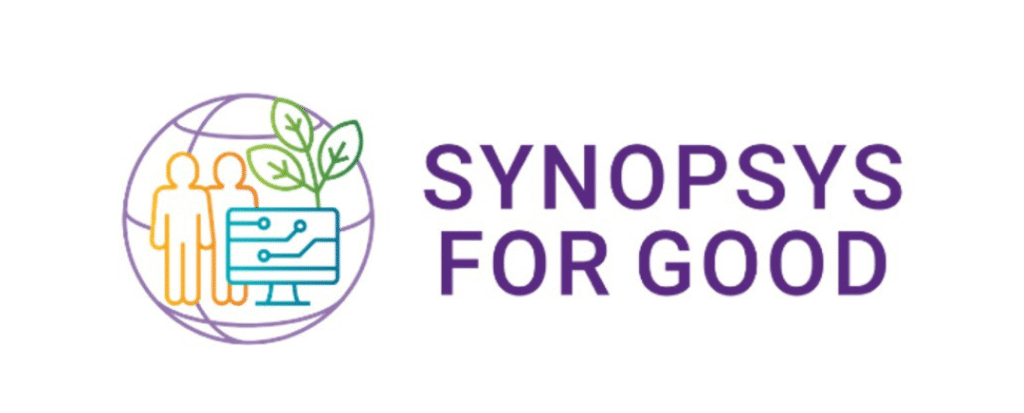
Spark of Curiosity: Project Overview
‘Spark of curiosity’ is an Innovative program executed by Saare Tare Zameen Par Trust in association with Synopsys. It is a combination of various programs that aim to ignite curiosity and learn science concepts.
It includes:
- Digital Mobile Planetarium Shows.
- Customized Science kits distribution.
- Offline Lectures and Virtual Lectures.
- Virtual meeting with Teachers to explain the use of kits in regular teaching.
- Group Activities by Students.
- Student Interaction with an Indian Scientist.
- Quiz Competition.
Scope of Work
For the FY 2021-22, Synopsys has collaborated with Saare Tare Zameen Par Trust to execute ‘Spark of curiosity’ to achieve a sustainable impact on the science education in rural Karnataka.
What we have committed,
Vision: To build an interest in learning science by introducing Hands-on learning or experiential learning to the remote areas. And make them learn and understand the concepts more deeply.
Targeted Number of students: For the engagement of academic year 2021-22, the program was designed to target 3000 students.
Targeted Geographical area: On the initial discussion with the dignitaries of Synopsys, it was decided to conduct the Spark of Curiosity program in Coorg, North Karnataka.

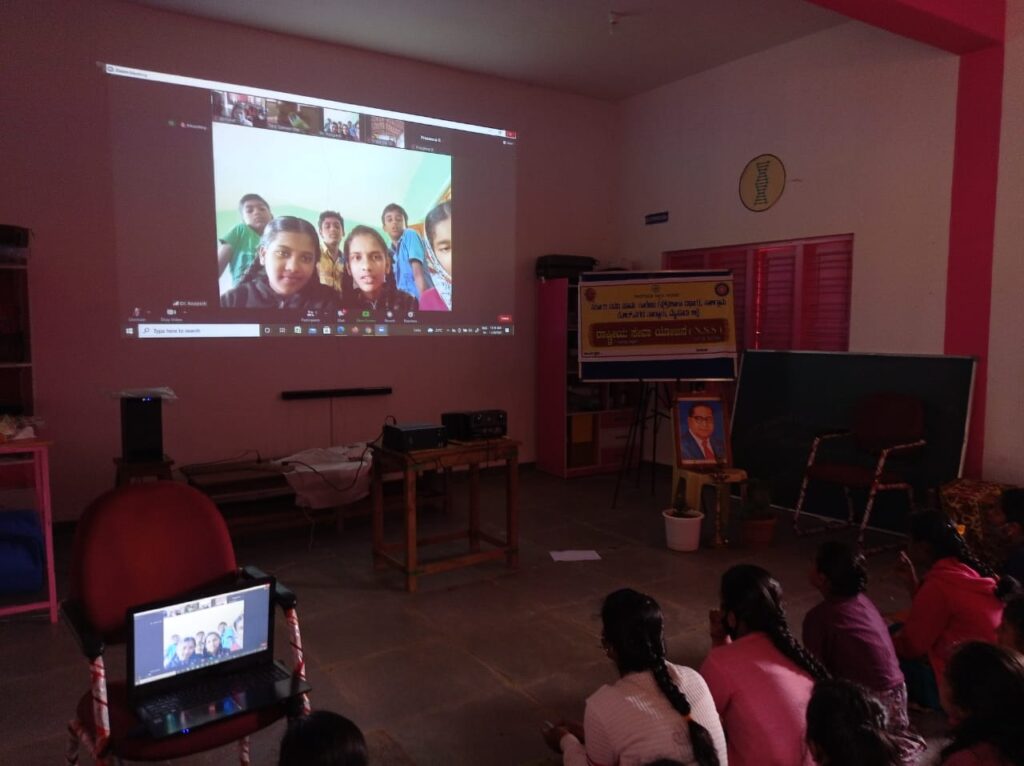
Additional activities
During the execution of the program that had been planned with Synopsys, we thought of adding a few more activities to achieve the maximum impact. We had designed the academic engagement program that includes,
- Digital Mobile Planetarium: It’s an inflatable dome with a 360 projection system that gives an immersive experience. Through this mobile planetarium, students from remote areas can experience similar shows that urban students can experience by visiting Planetariums in science centres.
- Interaction with Indian Scientists: It is always motivating and inspiring to have interaction with Indian Scientists. The Spark of Curiosity initiative has received appreciation from the renowned Indian Scientist and former chairman of ISRO, Sri Kiran Kumar. He also agreed to interact with students during the inauguration of the Spark of Curiosity program.
- Quiz Competition: Making students participate in competitions like quizzes can build their interest to learn by enjoying it. While one student is playing the quiz, a student from the audience also tries to find and give the answers. We have used the same concept. We designed the questionnaire in such a way that it includes very simple questions mapping to their syllabus. To bring a joyful environment to their learning.
- Other Activities: To ensure the outcomes of the project, we have also conducted Virtual Lectures, Virtual meetings with teachers to explain the use of kits in regular teaching, and Group Activities by Students.
Inauguration Event
The inauguration event was held at the Government School in Saligrama Village in the Mysore district. Keeping COVID-related protocols in account, it was organized offline as well as in virtual mode. The Chief guests and the Guests of honor were present virtually.
Guests: The science kits were virtually inaugurated by Hon Chief Guest Sri Kiran Kumar, the renowned Indian Scientist and the former chairman of ISRO. In the virtual presence of the guest of honor, Sri Raja Subramanyam, VP, Application Engineering, Synopsys, Sri A.B. Basavaraj KAS, Director (Technical), KSTePS, and the special guests, Sri Mukesh B.A., Director Finance, Synopsys, Sri Chandrashekar B.U., Principal R&D Engineer, Synopsys, Sri Dinesh Badagandi, Founder, Tare Zameen Par, Sri Raveesh S R, Proprietor, Sara Vidya Mandir, Smt Vatsala S K, Vice Principal, Govt Junior college, Saligrama.
Event Highlights: Around 300 students from the Saligrama High School and the nearby schools were present for the inauguration. All the guests were able to interact with students through a big screen. After the formal inauguration, the Guest of honor addressed the students. Then the Hon.Chief guest, Sri Kiran Kumar, shared his valuable experience and had an interaction session with students, where students asked questions to him. Later, we distributed science kits to all students. Simultaneously, they also experienced the Digital Mobile Planetarium shows.
Replication: after the first successful event, we have replicated this during all the next phases of Science Kit distribution.
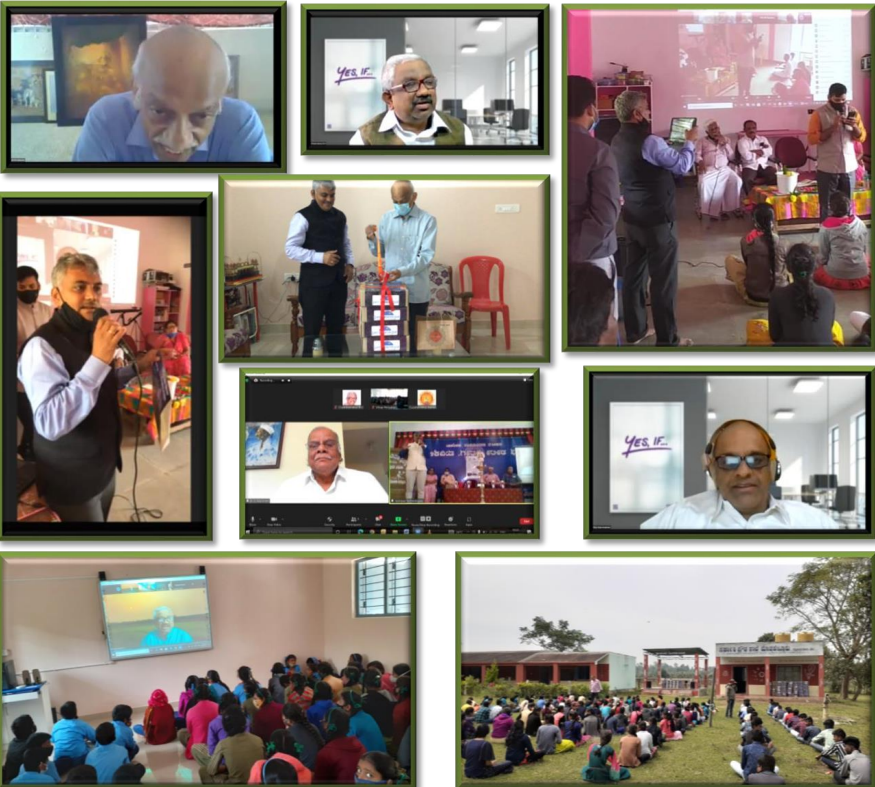
Distribution of Kits
We had targeted 3000 students from different geographies. We tried to cover some areas in South Karnataka and some areas in North Karnataka as well. We have distributed science kits in 26 Schools.
While distributing kits, we used to make sure that every student would know the exact benefit of every element of this project.
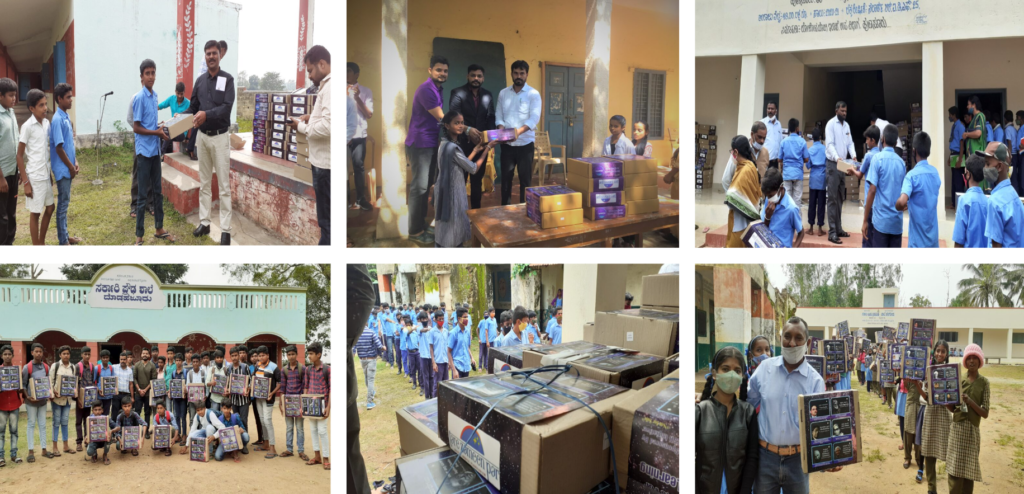
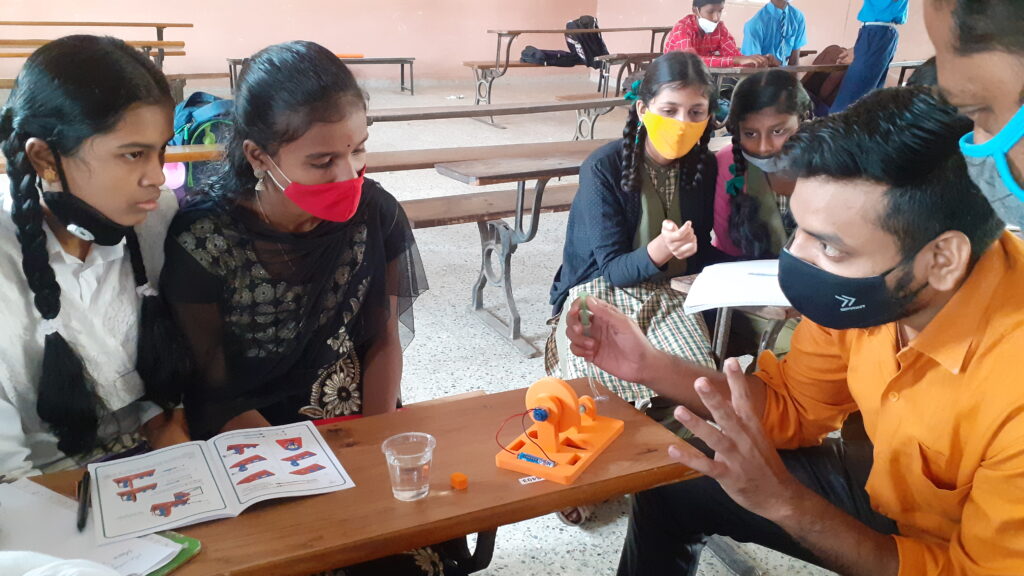
Offline Lectures
We always focus on conceptual learning. Learning science is more effective and useful if the concept behind the topics and experiments is clear. We had arranged offline lectures where our science teachers used to explain the deep concept behind the experiments.
Virtual Lectures
As we have covered the different regions in rural Karnataka, It was quite challenging to visit every school repeatedly to conduct offline lectures. Also, to ensure COVID-related precautions, we arranged the lectures over ZOOM. Some schools don’t have a projector and internet facilities. We discussed with teachers to form groups of students and give them their smartphones to attend the zoom lectures. This went well, and it could help us to keep in touch to solve any problems related to science kits.
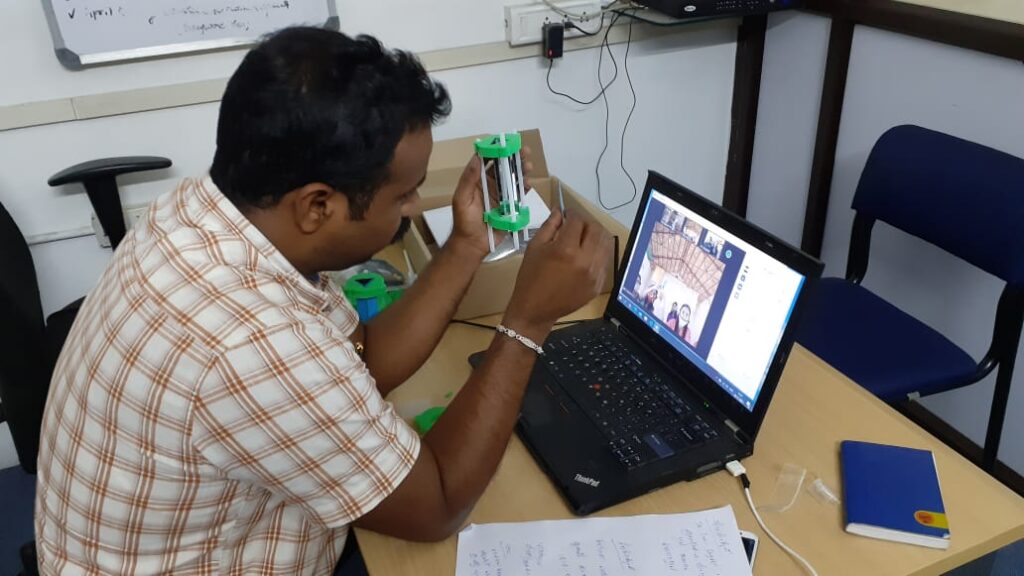

Quiz Competition
We had also organized the Quiz Competition to give extra benefits through the program, Spark of Curiosity. The advantages of Quiz Competitions that we have observed are,
- Students tend to read the material.
- Students are placed in the right attitude for learning.
- Students feel more confident to discuss the material.
- Students raise their grades by simply reading the material.
- The quiz provides a good lead-in for either a lecture or a discussion of the material.
- Students grow curious about the answers.
- The easy chance to do well gives students a feeling of self-esteem.
- Students are provided with a real foundation for intellectual growth.
Mobile Digital Planetarium
Digital Mobile Planetarium is our most appreciated project that gives an immersive learning experience. It is an inflatable dome with 360 projection system. There are well-established planetariums in metro cities. But, students from remote areas cannot afford to visit them. But our Digital Mobile Planetarium takes that experience to the doorsteps of remote areas. Along with Astronomy, we have other science-related content in English and other regional languages. We had arranged Planetarium shows during each phase of science kit distribution.
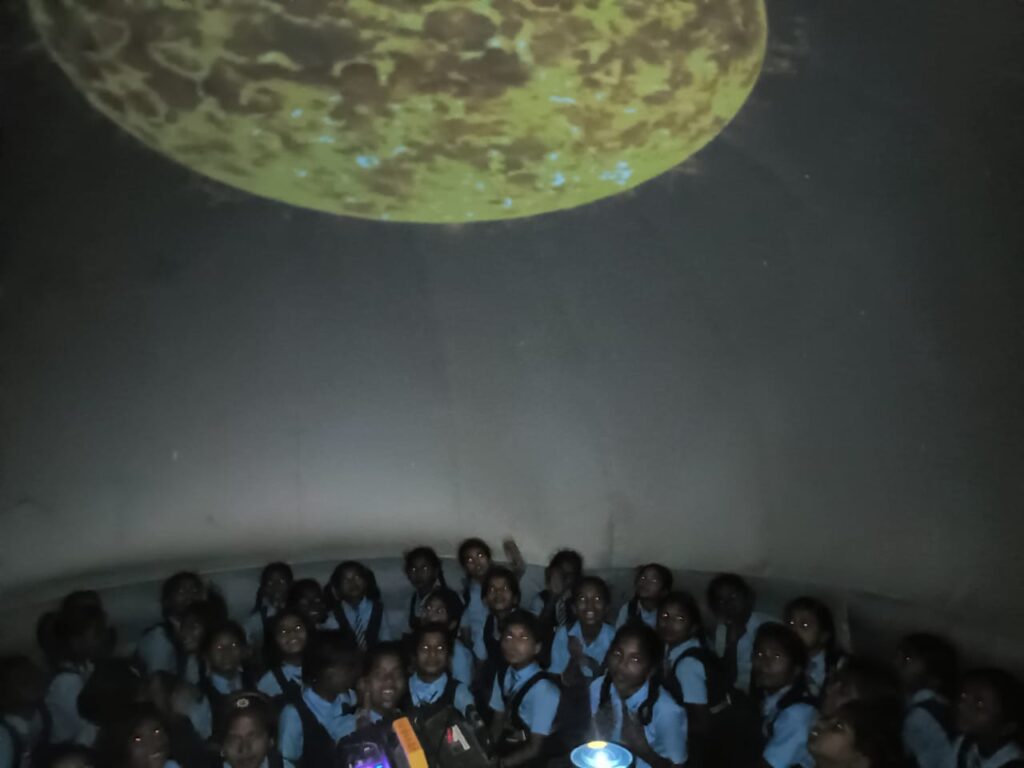
Video Feedback
It is our pleasure to say that the ‘Spark of Curiosity’ program is enjoyed by students and appreciated by teachers. Many students had contacted us personally through social media to share their videos where they have assembled the kits and performed the experiments by their own. This is proof that we are reaching our goal. Students are exploring themselves and involving in conceptualised learning.
